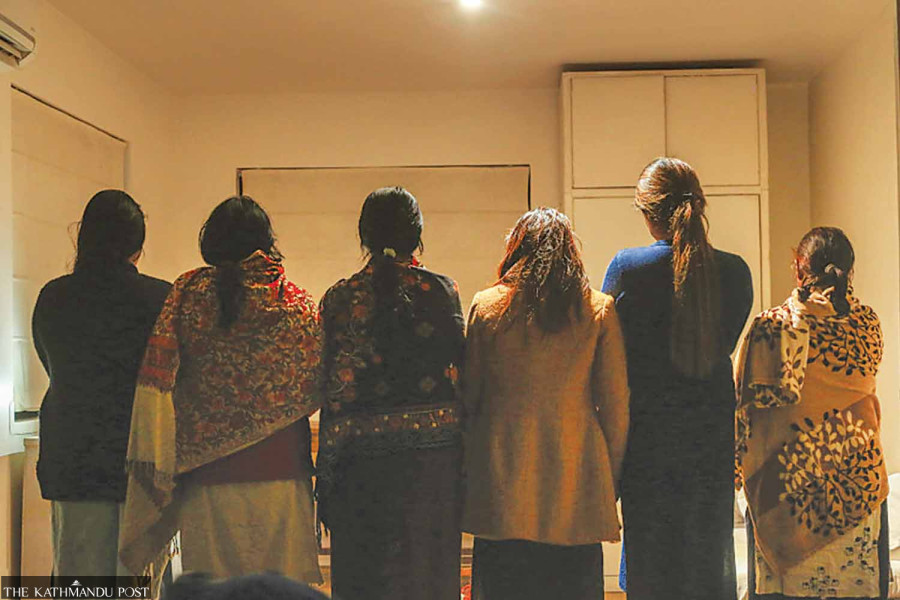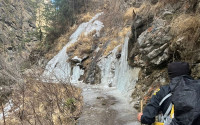National
Conflict victims, rights groups challenge Nepal’s transitional justice at UN
In a shadow report to the UN Human Rights Council, they demand victims’ voices heard and their dignity restored.
Manya Humagain
Even though Nepal has amended its transitional justice Act since the last United Nations Universal Periodic Review (UPR) in 2021, insurgency victims and civil society organisations say the government has failed to set up an independent mechanism to address conflict-era crimes and human rights violations.
Submitting a shadow report to the Human Rights Council, the inter-governmental body within the United Nations system responsible for addressing situations of human rights violations, on Thursday a coalition of 47 victims’ and 26 civil society organisations have claimed that the legitimacy crisis in Nepal’s transitional justice process continues to deepen even two decades after the peace process began.
Through the report, the coalition has demanded urgent reforms to ensure justice, truth, and reparations for conflict victims, emphasising a victim-centred approach and ending the pervasive culture of impunity.
The report says that following the long-awaited third amendment to the Enforced Disappearances Enquiry, Truth and Reconciliation Commission Act last year, many hoped that Nepal would finally undertake a meaningful transitional justice process. "However, political interference has once again derailed progress," it reads.
On May 15, the government appointed the chairpersons and members of the Truth and Reconciliation Commission (TRC) and the Commission of the Investigation on Enforced Disappeared Persons (CIEDP). It appointed Mahesh Thapa, a joint attorney general, as the chairperson of the TRC and former chief secretary Lila Devi Gadtaula as the chairperson of the CIEDP, ignoring the victim organisations' request to the prime minister and the top leadership of the major political parties to halt the appointments, raising questions over the selection process.
"Key nominations to the two commissions were distributed among major political parties through typical power-sharing procedures, putting the commissions under their official authority and compromising their legitimacy and independence,” according to the report.
Through the report, victims' organisations have called for meaningful inclusion in all stages of the transitional justice process, from appointing commissioners to designing and implementing mechanisms. They propose permanent consultative forums by mid-2026 to ensure victims’ voices shape the process and restore their dignity.
They also want a merit-based, transparent selection process to appoint commissioners of the TRC and CIEDP.
Stating that the amendment introduced some progress but falls short of international standards, the coalition has urged amendments to criminalise war crimes, crimes against humanity, and other gross violations, remove provisions allowing disguised amnesties, and clarify ambiguous definitions of “serious human rights violations.”
The coalition also has said that the transitional process excludes rural communities, persons with disabilities, Dalit, Madhesi, Janajati, LGBTQ+, and other historically oppressed groups and asked the government to ensure equitable participation, accessible complaint mechanisms, and outreach in local languages to ensure no victim is left behind.
Over 63,718 complaints have been registered with the TRC and 3,223 with the CIEDP, but none have been resolved to date. The coalition demands prompt investigations into conflict-era cases, particularly where First Information Reports have been filed but ignored. They also seek accountability for ongoing human rights violations.
The coalition has also requested that the international community pressure Nepal during the UPR to address these issues that delay the transitional justice process. It has called for support in establishing a victim-led, independent transitional justice process.
The victim and civil society organisations have warned that without immediate action, Nepal risks perpetuating impunity and denying justice to thousands of survivors.
“Many survivors have described feeling a profound sense of deception and betrayal, noting that despite limited progress since the last UPR, the current context reflects a political debacle rather than a step forward. This perceived manipulation of the process has further eroded trust,” reads the report.




 21.79°C Kathmandu
21.79°C Kathmandu














